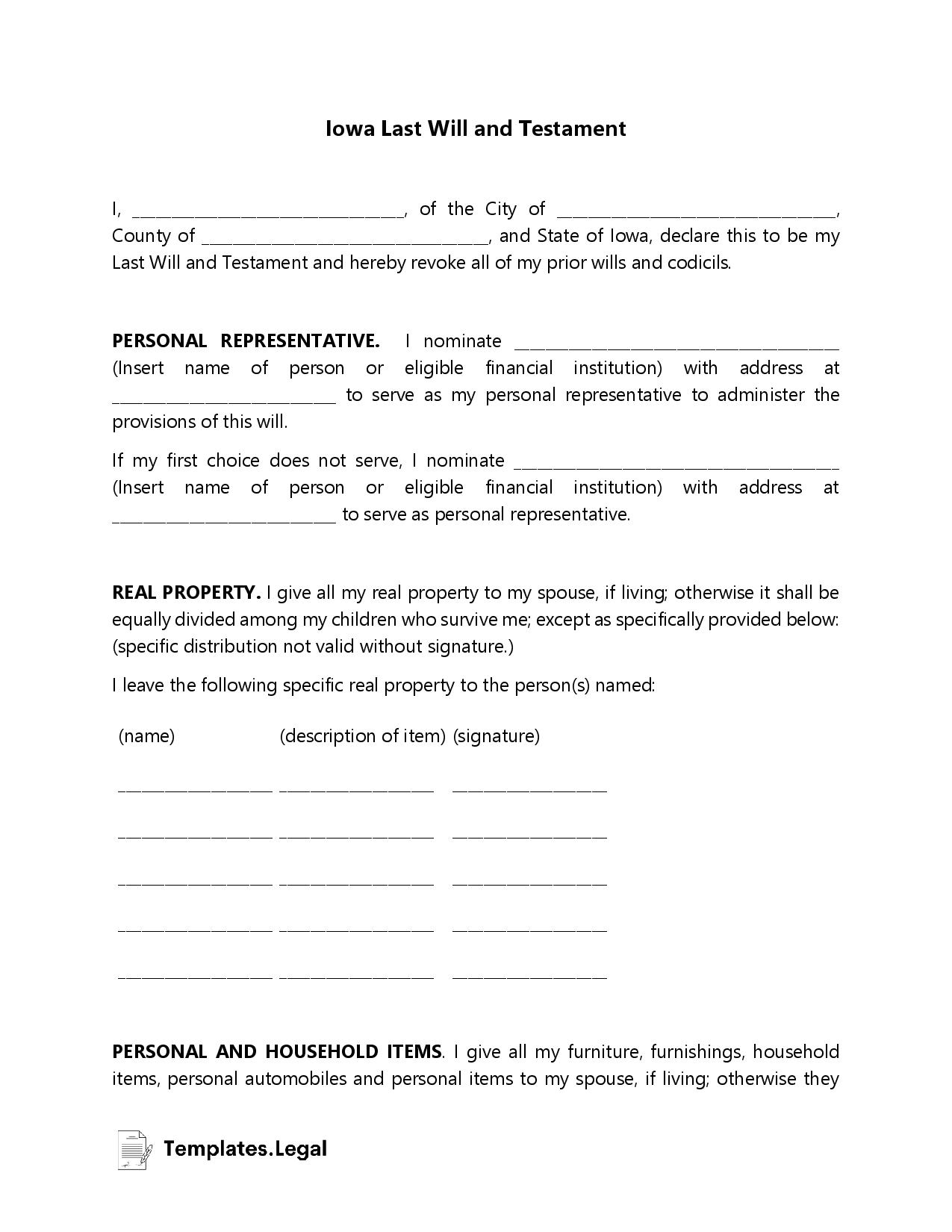Iowa Last Will and Testament
If you decide to create a will, you must understand how to make sure you follow the guidelines for an Iowa last will and testament.
This is a legal document, so you must adhere to the law when creating it, or a judge could declare it invalid after your death.
Avoid this issue by reviewing the requirements for an Iowa last will and testament found in Probate Code 633.279.
Iowa Last Will and Testament Template
Guidelines for an Iowa Last Will and Testament
The Probate Code outlines that for a document to be a last will and testament, you must sign it yourself or direct someone else to sign your name under your supervision. Your will must be in writing, and you must have at least two people to witness it.
The witnesses must watch you sign the document, and they must watch each other sign the document. Note that the witnesses must be at least 16 years old.
You and the witnesses must be of sound mind. This means you understand what the document is and its impact. You must be clear on every detail in the will.
Do note there is no last will and testament form in Iowa. You simply need to ensure you understand the contents and declare it as your will. You can change it as many times as you desire throughout your life.
Iowa Last Will and Testament FAQs
Because a will is a legal document, it is important to make sure you understand completely how to create one. To help, here is a look at some questions people often have about the process.

